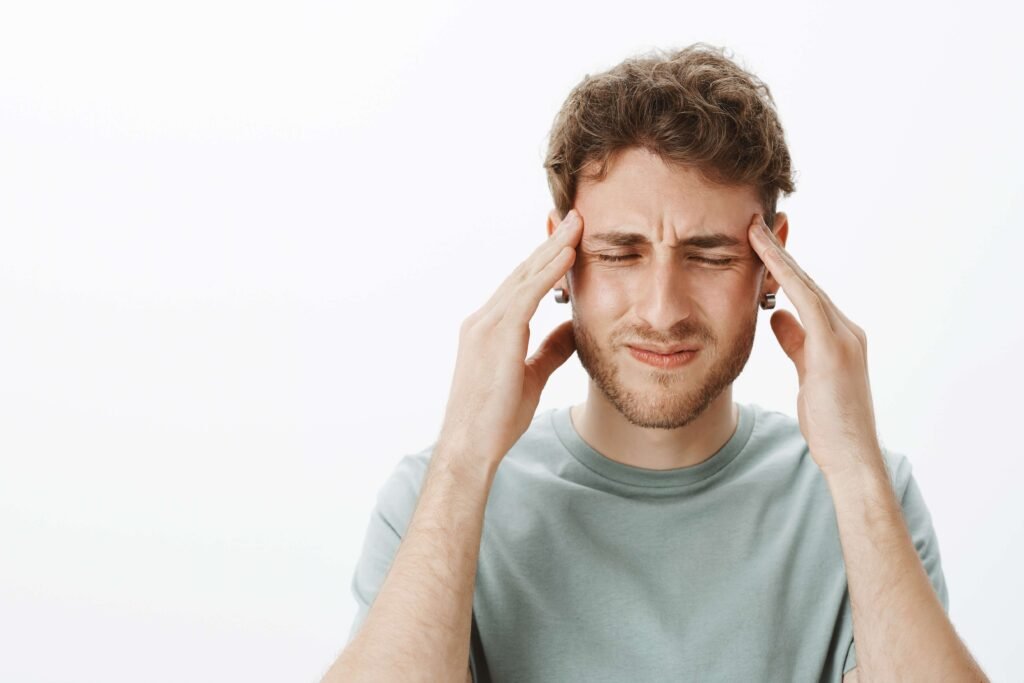A concussion may seem like a minor injury especially if you’ve “walked it off” after a fall or collision. But for some individuals, the symptoms don’t go away in a few days. Instead, they linger and even intensify over time. This condition is known as Post-Concussion Syndrome (PCS) a misunderstood but very real neurological issue that can affect one’s ability to function in daily life.
Understanding PCS is critical not only for proper diagnosis and treatment but also for preventing unnecessary suffering and prolonged recovery.
What Is Post-Concussion Syndrome (PCS)?
Post-Concussion Syndrome is a complex disorder where symptoms persist for weeks, months, or even longer after the initial head injury. While most people recover from a concussion within 10–14 days, PCS occurs in roughly 10–20% of cases, according to clinical studies.
Common symptoms include:
-
Persistent headaches
-
Dizziness or vertigo
-
Fatigue and poor concentration
-
Sleep disturbances
-
Memory problems
-
Sensitivity to light and noise
-
Anxiety or depression
PCS doesn’t necessarily correlate with the severity of the concussion. Even mild traumatic brain injuries (mTBIs) can lead to long-term complications.
Why Does PCS Happen?
The exact cause of PCS remains an area of ongoing research, but current evidence points to a combination of factors:
-
Neurological Disruption:
A concussion disrupts normal brain function. In PCS, the brain may struggle to restore equilibrium, especially in areas governing balance, emotion, and cognitive processing. -
Vestibular Dysfunction:
Many PCS patients experience imbalance, dizziness, and spatial disorientation. These symptoms often arise from vestibular system damage the inner ear structures and brain pathways that control balance and eye movement. -
Autonomic Nervous System Imbalance:
PCS may trigger a dysregulation in the body’s autonomic functions (like heart rate, breathing, and blood flow), leading to symptoms such as lightheadedness, brain fog, or fatigue. -
Psychological Factors:
Anxiety, stress, and mood disturbances often accompany PCS not as causes, but as amplifiers of symptoms. Early mental health support can significantly improve outcomes.
Who’s at Risk for PCS?
Anyone can develop post-concussion syndrome, but studies suggest it is more common in:
-
Individuals with a history of multiple concussions
-
Women (especially aged 18–35)
-
People with underlying mental health conditions (e.g., anxiety, depression)
-
Those who resume physical or cognitive activities too soon after a concussion
Diagnosis: Why PCS Is Often Overlooked
PCS is a clinical diagnosis, meaning it’s identified based on patient history and symptom presentation rather than imaging. This can make it difficult to recognize, especially when symptoms are subtle or attributed to other conditions like migraines or anxiety.
Clinicians with training in neurological and vestibular assessment are best equipped to identify PCS accurately.
Effective Treatment: A Multidisciplinary Approach
Treating PCS isn’t about one-size-fits-all solutions. It requires a personalized, multidisciplinary approach involving:
-
Vestibular Rehabilitation Therapy (VRT) to restore balance and reduce dizziness
-
Cognitive therapy for focus, memory, and mental clarity
-
Manual therapy and physio to address neck injuries or motion sensitivity
-
Psychological support to manage mood and anxiety
-
Gradual return-to-activity protocols under expert supervision
Clinics specializing in concussion and balance recovery, such as StabilityLAB in Vancouver, are uniquely positioned to deliver this type of care.
The Importance of Early Intervention
Delaying treatment for PCS often leads to prolonged recovery and deeper emotional and cognitive impacts. The earlier patients receive a thorough assessment and start a structured recovery plan, the better the outcomes.
If you or a loved one are experiencing ongoing symptoms weeks after a head injury, it’s essential to consult a concussion-trained professional.
Final Thoughts: Listening to the Brain’s Signals
Post-Concussion Syndrome isn’t “in your head” it’s your brain asking for care, rest, and structured recovery. With proper guidance, most people can reclaim their balance, focus, and well-being.
If you’re in Vancouver and seeking specialized care for concussion-related symptoms, consider visiting a balance-focused clinic like StabilityLAB. We offer post-concussion rehab in Vancouver designed to help you get back to steady ground safely and confidently.







